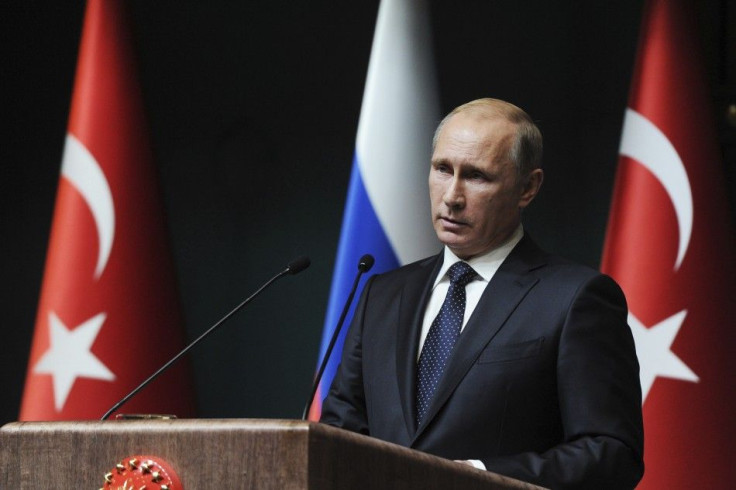Russia's Intelligence Tactics In Ukraine, Nearby Countries Reminiscent Of Cold War Era

Russia's Federal Security Service is drawing comparisons to the Soviet Era as the crisis in Ukraine continues. Previous reports indicate that Russia's intelligence operations is widely perceived as the blueprint the Kremlin uses for its active presence in former republics.
The Kremlin's intelligence service is said to be based on knowledge and experience from the Soviet Era when the KGB framework was necessary to maintain communist rule, according to a report by the Diplomat. The Politburo in Afghanistan employed KGB tactics in which Soviet advisers kept track of factional splits in an attempt to control the affairs of the communist party in the country. Political observers have noted that Russia's intelligence approach to countries outside its borders is reminiscent to the Cold War era.
In 2010, the Kremlin established a Russian FSB surveillance team presence in South Kyrgyzstan. Moscow had reportedly expressed concern about the high incidence of high trafficking in the area. However, the Kremlin was suspected of using the conflict to advance its own political agenda, the report said. Russia's previous presence in Kyrgyzstan was not that different from its strategy in Ukraine.
Meanwhile, Russian President Vladimir Putin has allowed Russian billionaires with cash overseas to bring it back at no charge in a surprising move. Russia is already predicted to plunge into recession in 2015 in the face of Western sanctions over Ukraine. In an attempt to bring more money into the country, the president has offer Russians a tax amnesty programme.
According to RT News, Russia has tried to offer a tax amnesty in 2007 and collected $130 million in the first six months. The offer was available to Russians who had never been convicted of tax evasion or other related crimes. The amnesty is one of the pro-business measures proposed by Mr Putin in his annual address before the Federal assembly.
Mr Putin has also offered not to change the tax policy in the next 4 years. He said it was necessary to alleviate the tax burden especially for citizens who have just started work. Mr. Putin also reminded the assembly that small businesses will get a tax relief in their first 2 years. President spokesperson Dmitry Peskov said in an interview with Rossiya 24 TV that Mr Putin's decision to give tax amnesty would give capital an opportunity to return to Russia. Aleksey Moiseev, Deputy Finance Minister, told RT that the offer was meant for domestic economics.





















